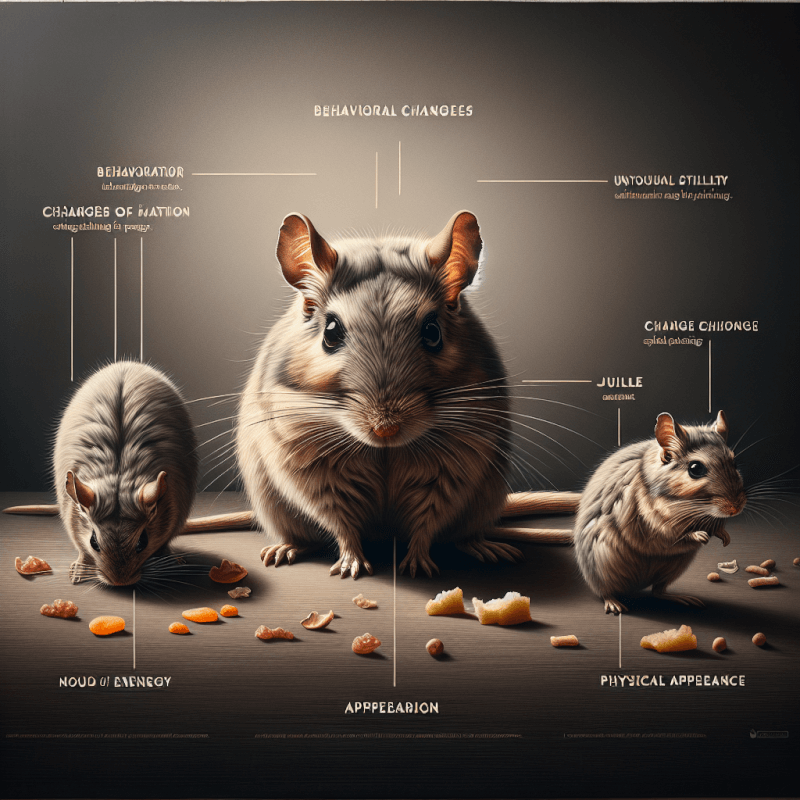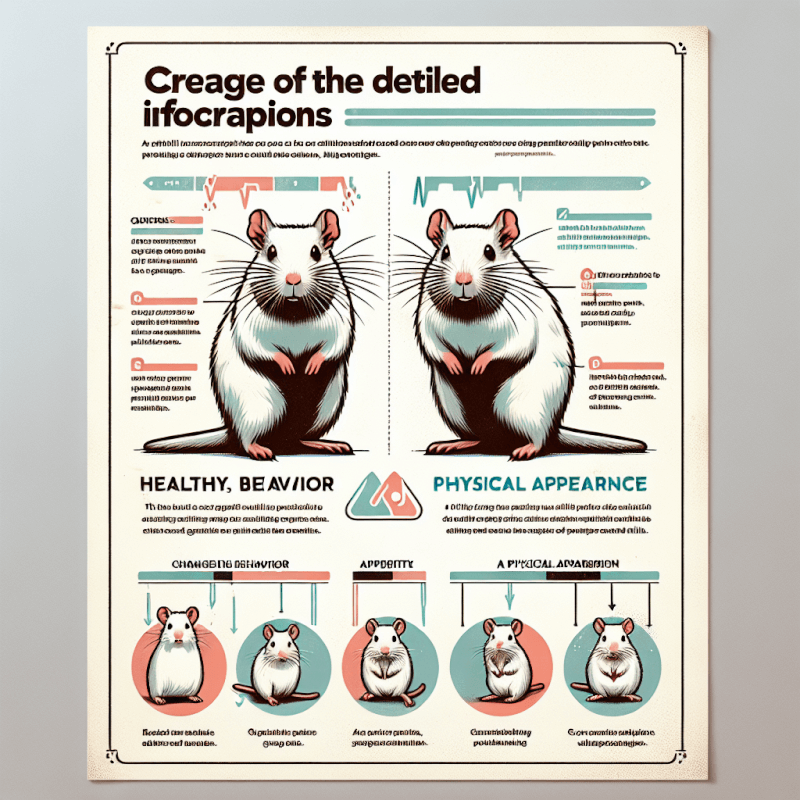Have you ever wondered how to tell if your gerbil is feeling under the weather? It’s important to recognize the signs of illness in your furry friend, as early detection can make a significant difference in their well-being. From changes in behavior to physical symptoms, there are several indicators to watch out for. In this article, we’ll explore some common signs of illness in gerbils, helping you to provide the best care and attention to your beloved pet. So, let’s dive into the fascinating world of gerbil health and learn how to keep our little companions happy and healthy.
Signs of Illness in Gerbils
Gerbils, those adorable little creatures, can sometimes become ill just like any other pet. As a responsible gerbil owner, it’s crucial to be aware of the signs of illness in order to provide proper care and seek medical attention when needed. Observing changes in behavior, appetite, coat condition, and other indicators can help you identify potential health issues in your furry friend. In this article, we will discuss some common signs of illness in gerbils and what you can do to ensure their well-being.
Ready for Cat Trivia?
Test your knowledge about cats!

Changes in Behavior
One of the first things you may notice when your gerbil isn’t feeling well is a change in their behavior. Gerbils are typically active, curious, and energetic animals. If you notice your gerbil being unusually quiet, spending excessive time sleeping, or appearing less interested in their usual activities, it could be a sign of illness. They may also become more aggressive or display abnormal movements and postures. Paying attention to any such changes will help in identifying potential health issues.
Changes in Appetite and Picky Eating
Gerbils are known for their hearty appetite, so any significant change in their eating habits is a cause for concern. Keep an eye on their food consumption and look out for decreased appetite, refusing favorite treats, or becoming picky with their food. Weight loss may accompany a decrease in appetite, so tracking their weight regularly is important. If you notice a sudden change in their eating patterns, it is advisable to seek veterinary guidance as it could be a sign of an underlying health problem.

Weight Loss or Gain
Monitoring your gerbil’s weight is an important part of their overall health assessment. Significant weight loss or gain can indicate an underlying health issue. If you notice your gerbil dropping weight rapidly or becoming unusually plump, it is essential to intervene promptly. Maintain a record of their weight and observe any sudden fluctuations, as this could be an indication of a medical condition that requires attention.
Fur Loss or Dull Coat
A healthy gerbil should have a luscious and shiny coat. If you observe patches of hair loss or an overall dullness in your gerbil’s fur, it may be a sign of illness. Fur loss can be caused by a variety of factors, such as parasite infestation, allergies, or even hormonal imbalances. Keeping an eye out for any changes in their fur condition will enable you to address potential health issues early on.

Eye and Nose Discharge
Clear, bright eyes are a sign of a healthy gerbil. If you notice any discharge from their eyes or nose, it may indicate an infection or respiratory problem. Excessive tearing, redness, or crusty discharge around the eyes should not be ignored. Similarly, if your gerbil has a runny or congested nose, it may be a sign of a respiratory infection. Seeking immediate veterinary care can prevent these conditions from worsening and ensure your gerbil’s comfort.
Labored Breathing
Gerbils typically have fast breathing rates, which is normal for their species. However, if you notice your gerbil struggling to breathe or having labored breaths, it could be a sign of respiratory distress or other underlying health problems. Rapid, shallow, or noisy breathing should be evaluated by a veterinarian. Prompt medical attention is crucial to prevent further complications and provide necessary treatment.

Lethargy and Weakness
If your once lively gerbil is exhibiting signs of lethargy, weakness, or a noticeable decrease in their activity level, it’s a clear indicator that something may be wrong. Gerbils are naturally energetic creatures, so any unexplained decrease in their activity should be taken seriously. Keep an eye out for prolonged periods of inactivity, reluctance to move, or difficulty with even basic tasks such as grooming. Promptly address these changes to ensure your gerbil receives the care they need.
Frequent Urination or Changes in Urine Color
Keeping track of your gerbil’s urine frequency and color is essential for their health assessment. An increase in urination frequency or changes in the color of their urine can be symptoms of underlying health issues. Darker or discolored urine may indicate dehydration, while blood in the urine could be a sign of a urinary infection or kidney problem. Monitoring their urinary habits and promptly addressing any abnormalities is crucial for their well-being.

Digestive Issues
Gerbils have relatively sensitive digestive systems, and any disruption in their digestive process can lead to discomfort and illness. Diarrhea, constipation, or changes in stool consistency can be indicative of gastrointestinal problems. Additionally, bloating, excessive gas, or vomiting may be signs of an underlying issue. Regularly monitoring their digestive health and seeking veterinary attention if any irregularities occur will help maintain a healthy gut and overall well-being for your gerbil.
Seizures
While less common, seizures can occur in gerbils and should be considered a serious medical issue. Seizures can present as sudden and uncontrollable body movements, loss of consciousness, shaking, or twitching. If you witness your gerbil experiencing seizures, it is essential to seek immediate veterinary assistance. Identifying the cause of seizures and providing appropriate treatment can help improve their quality of life and prevent further complications.
In conclusion, being aware of the signs of illness in gerbils is vital as a responsible pet owner. By closely monitoring your gerbil’s behavior, appetite, weight, coat condition, and other factors, you can quickly identify when your furry friend may be unwell. Seeking veterinary guidance at the earliest indication of illness ensures that your gerbil receives prompt treatment and care, ultimately contributing to their overall health and happiness. Remember, your gerbil relies on you for their well-being, so be proactive and attentive to their needs.



